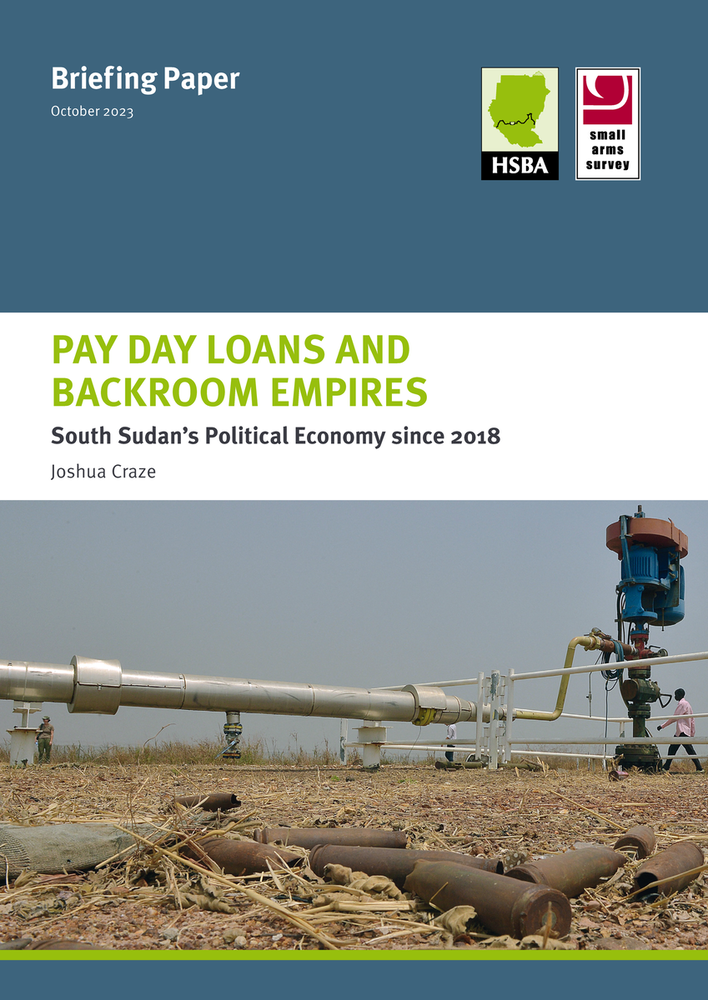
New HSBA Briefing Paper on South Sudan’s political economy under President Salva Kiir
GENEVA—Though elections are now postulated for next year, South Sudan remains in crisis. Conflict continues to scar the country, and climatic shocks exacerbate already acute resource scarcity, leaving approximately 76 per cent of South Sudan’s population surviving on humanitarian assistance. The regime of South Sudanese President Salva Kiir survives by diverting revenues in three key areas—oil production, humanitarianism, and loans from international financial institutions—to the benefit of an elite class in Juba, but at the cost of the immiseration of the people of South Sudan.
Pay Day Loans and Backroom Empires: South Sudan’s Political Economy since 2018—a new Briefing Paper from the Small Arms Survey’s Human Security Baseline Assessment for Sudan and South Sudan (HSBA) project—analyses this predatory political economy in South Sudan, and charts a shift from the use of wages to reward loyal appointees to a more obscure system based on the dispensations of favours.
For more, check out:
- 'And Everything Became War': Warrap State since the Signing of the R-ARCSS—an in-depth report on current political and conflict dynamics in Warrap state
- The Human Security Baseline Assessment (HSBA) project page
- South Sudan outputs in our Resource Library
Other news from the Survey:
- The Small Arms Survey signs project partnership with CARICOM IMPACS, the Caribbean Public Health Agency (CARPHA), the University of the West Indies George Alleyne Chronic Disease Research Centre (GA-CDRC)
- New HSBA Situation Update on Sarah Cleto’s precarious tenure over Western Bahr el Ghazal, South Sudan
- The National Agency for Controlled Materials of Argentina and the Small Arms Survey sign a Memorandum of Understanding
- New HSBA Situation Update on Nguen Monytuil Wejang’s control over Unity state, South Sudan
- New Blog Post: The Women, Police, and Insecurity Agenda: Argentina's Response to Surging Femicide and Domestic Gun Violence by Its Security Forces